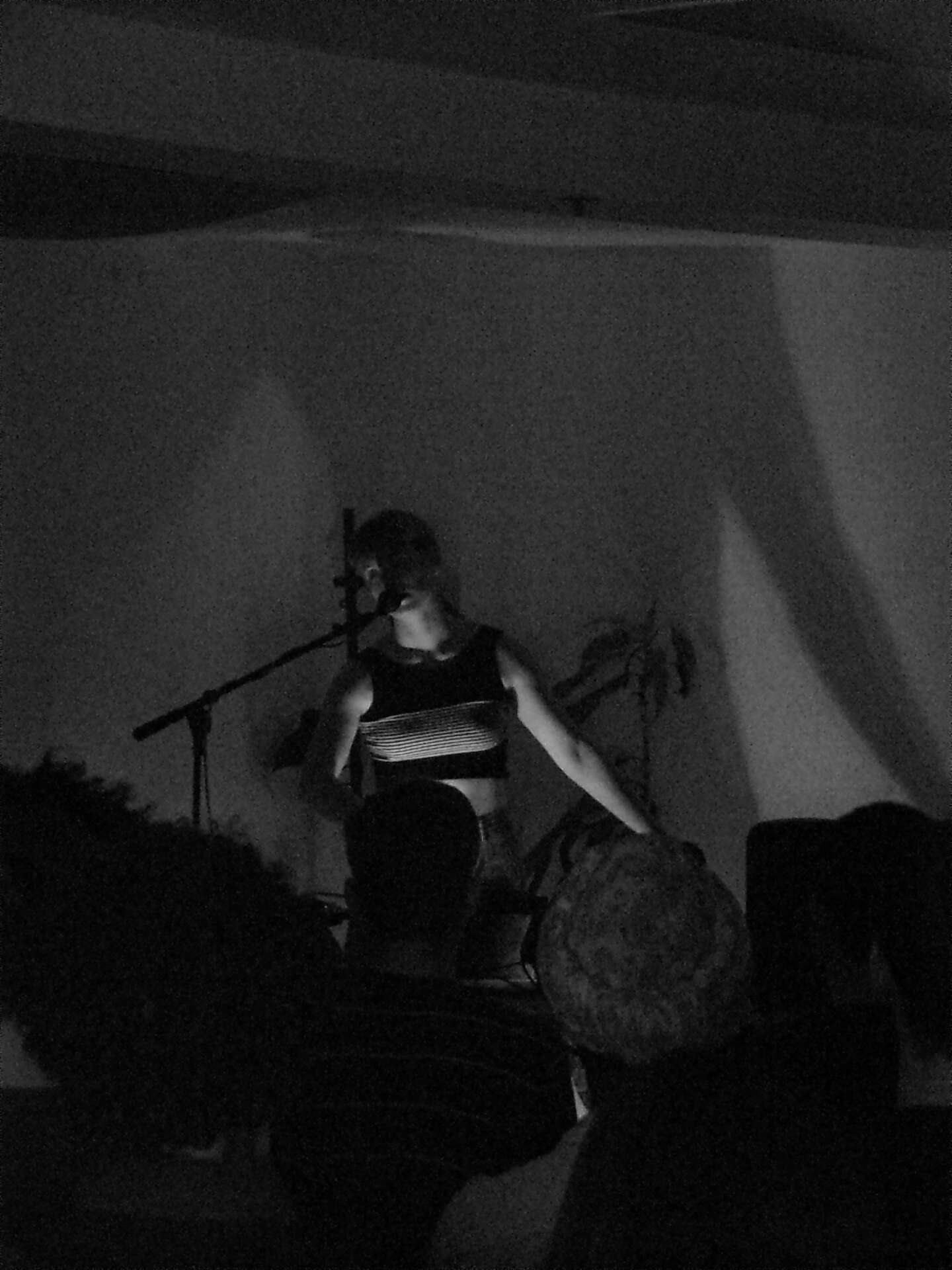We caught up with the brilliant and insightful Leni Kreienberg a few weeks ago and have shared our conversation below.
Leni , looking forward to hearing all of your stories today. Can you talk to us about a project that’s meant a lot to you?
My first experience building and performing my own instrument was incredibly important to me both personally and for my development as an artist. Coming from a combination of a classical background on the French horn and a traditional vocal jazz background, my education as a musician was largely quite regimented. I learned standard repertoire, I aimed toward the sound of my musical idols, and I rarely stretched the boundaries my teachers had set in place. It wasn’t until I began learning Max/MSP in 2018 that I found a new means of musical expression I felt gave me the freedom I needed as an artist. A whole world opened up for me. I was free from Beautiful Sounds: time grids, traditional tuning systems, codified instrument affordances, and all of these things I hadn’t realized were creating a stifled resentment in me. Unsurprisingly, all of this realization came at time when I was learning about my own identities, developing a politic, and coming to terms with the heap of unlearning I would need to do in order to contribute to my communities in the way I wanted.
When I built the instrument that would later become “contact system,” I was thinking of ways to create as close of a translation as possible between the sounds I imagined and the sounds I heard. This is now a familiar process to me vocally, but a few years ago was challenging and full of friction. I wanted everything to feel new: the performance gestures, the sonic palette, and the visual experience. I wanted to really dive in to the feeling of creating my own world with systems, languages, and logics that I understood fully, which extended to the development of my solo improvisational practice. Having that level of agency was eye-opening, and drove me further into the realm of custom instruments, gestural controllers, and integrating my electronic practice with my vocal improvisation practice.
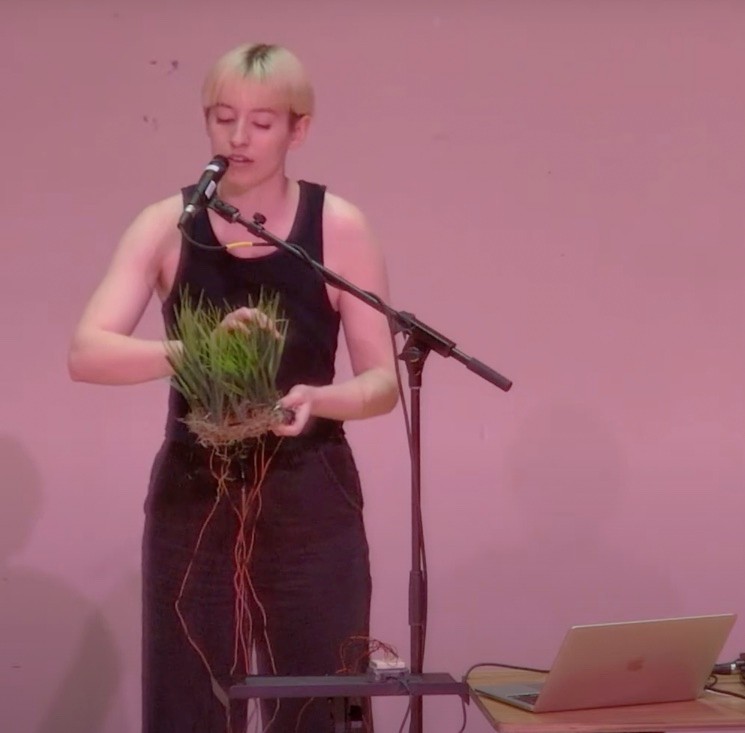
As always, we appreciate you sharing your insights and we’ve got a few more questions for you, but before we get to all of that can you take a minute to introduce yourself and give our readers some of your back background and context?
I am a composer, performer, improviser, and sound artist living in New York, originally from Albany. I make instrument systems with unique gestural controllers that use software to generate and process sound. I write music in a variety of forms and using a variety of mediums, including text scores, sound collage, songs, improvisation, games, graphic scores, and classically notated scores in the Western tradition. As an improviser, I use my electronic composition ethos to guide my vocal practice, working towards new sounds and structures. Lately, in my work I explore ideas around cyborg and trans identities, computer and performer power dynamics, and the relationship between performative gestures and control.
I grew up playing a variety of instruments, eventually landing on the French horn as my primary practice through college. In college, I double-concentrated in biology and music, and my main musical practices were classical French horn and vocal jazz performance. I did very little composition until I began my first foray into production in Max and Ableton, which were critical tools in my development as a composer. I began to realize that my main musical motivation is the exploration of sound, and my instrument- and software-hopping tendencies were strengths of my compositional practice, not weaknesses. I continue a lot of this exploratory work in my improvisational vocal practice.
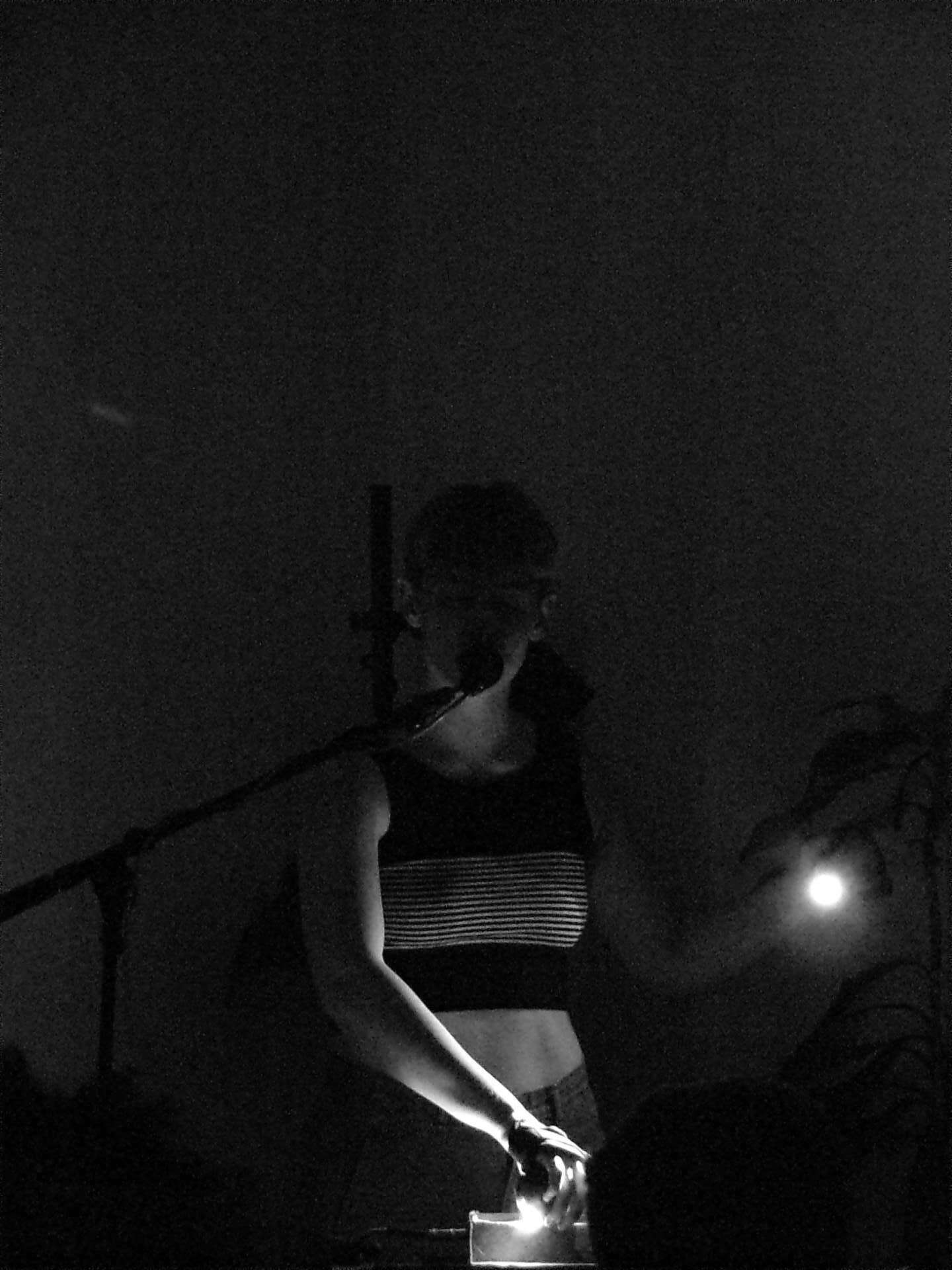
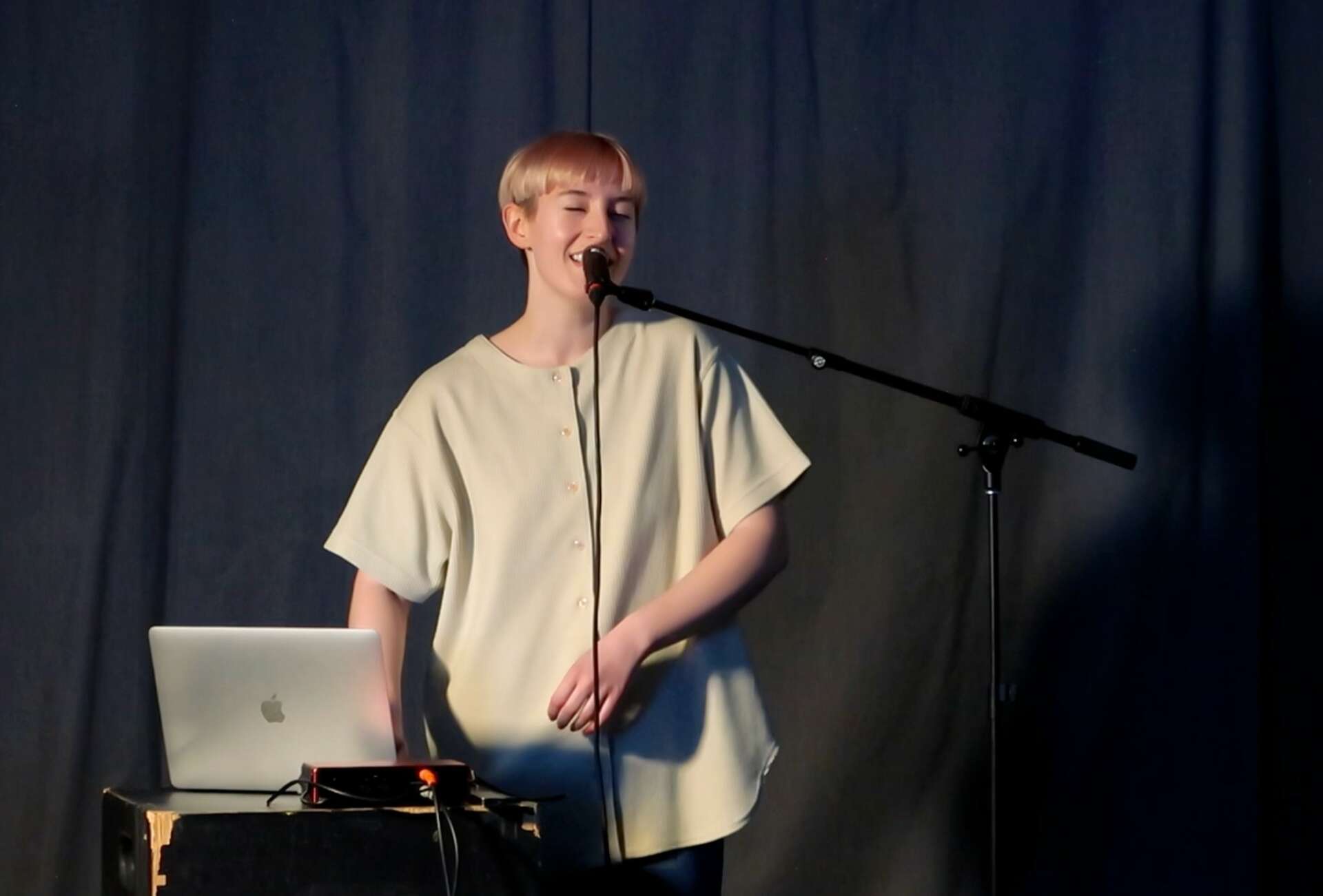
Learning and unlearning are both critical parts of growth – can you share a story of a time when you had to unlearn a lesson?
For most of my undergraduate experience, I was studying with the hope of applying to medical school after I graduated. I took pre-med course requirements, did the MCAT, studied like crazy, all the steps you need to take in order to be a qualified applicant. The culture of pre-med students can be competitive and isolating. I spent a lot of time alone in the library or in the wet lab where I worked. Even when studying in groups, it was clear that each person was primarily looking out for their own success. In exams, you often have to work against your peers, hoping people do poorly so the curve works in your favor. I began to experience a serious discomfort, feeling an unnatural push toward self-interest and competition.
Simultaneously, I was taking classes in the music department, working towards finishing a music concentration in conjunction with my biology concentration. I initially saw this as a respite from the discomfort of the STEM grind, but I began to seriously consider the long term implications of the feelings I was having about the path I was going down. As a pre-med student, I was taught to hunker down and work extremely hard toward my personal goals, front-loading suffering for a far-off future that would be worth the sacrifice. But as I imagined my life, the sense of community I had already found in studying music with my peers began to outweigh the financial stability, prestige, and unquestionable purpose that medicine promised.
Through this experience, I learned that I need collaborative, supportive, communal learning experiences in my life, which the American medical education system simply cannot offer. The musical communities I have been a part of are abundant in these experiences. This isn’t to say there is no competition in music, but I have come to know myself better through this path change, and I have learned to actively seek out opportunities that contain the spirit of collectivism.
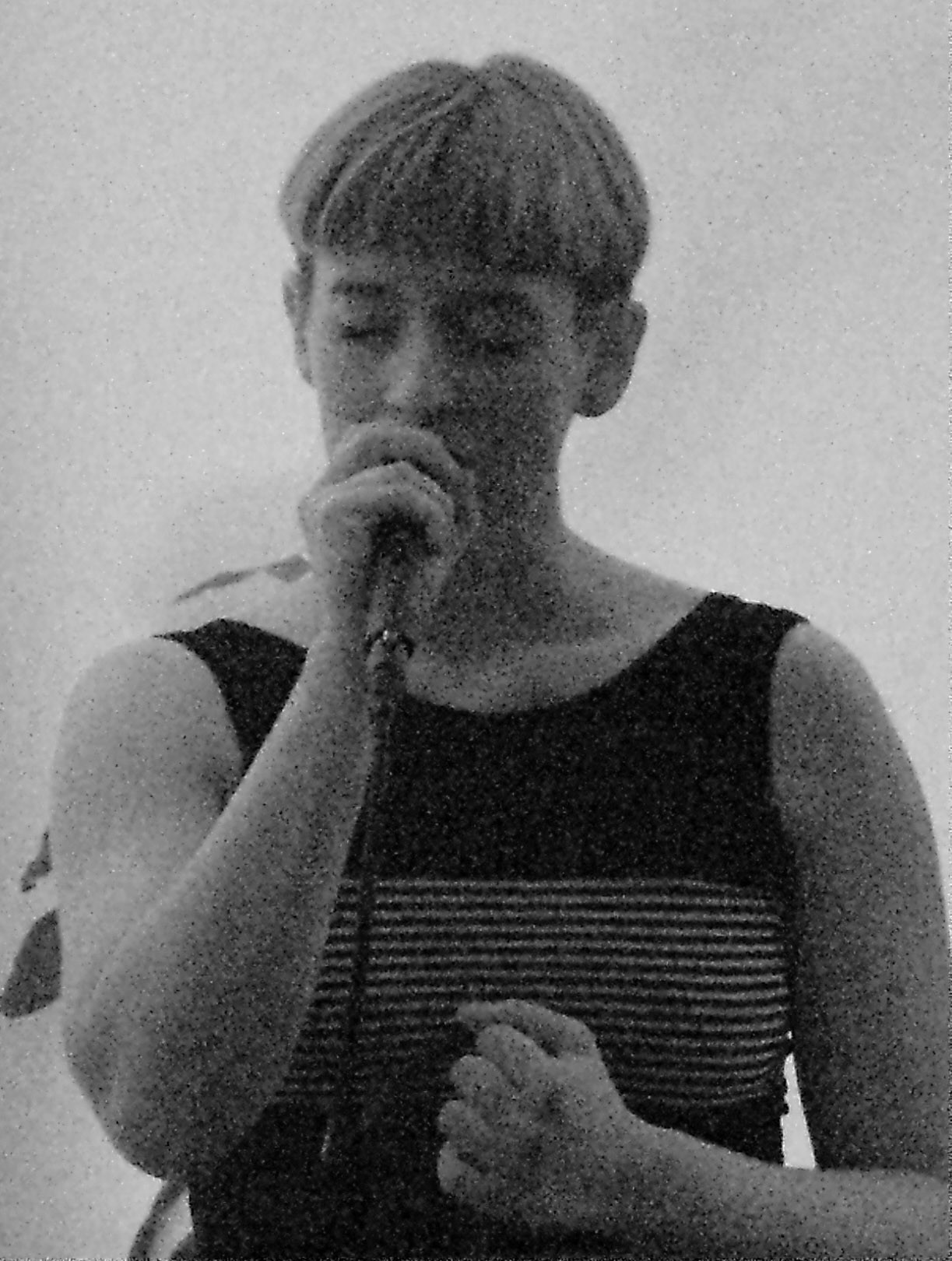
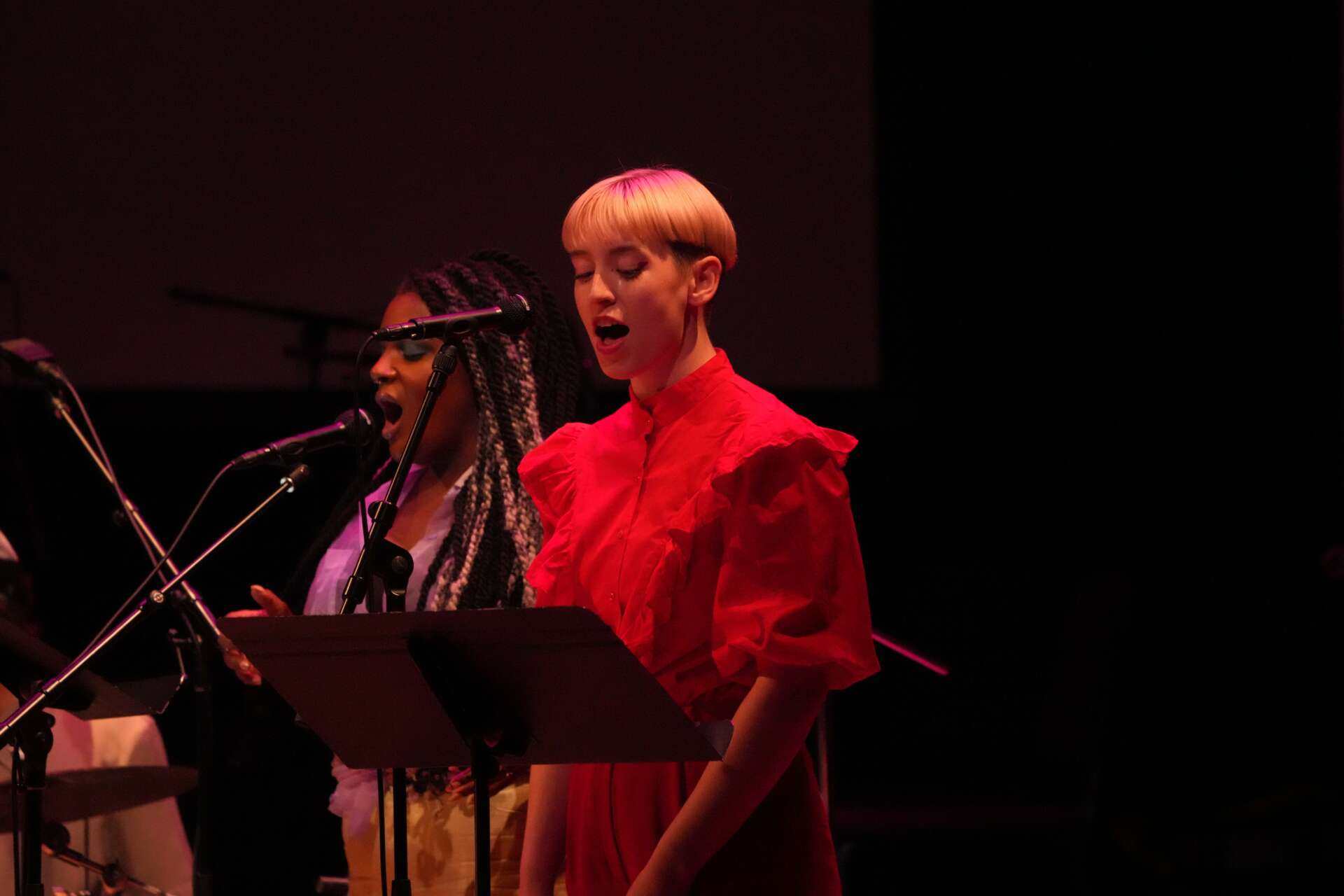
What can society do to ensure an environment that’s helpful to artists and creatives?
Society can best support artists by creating the conditions that allow artists to live. Policing and prison systems should be defunded into non-existence, and funds should be diverted to schools, libraries, community centers, healthcare, public housing, public transit, food banks, etc.. On a smaller scale, buy your friend’s album, buy your neighbor a meal.
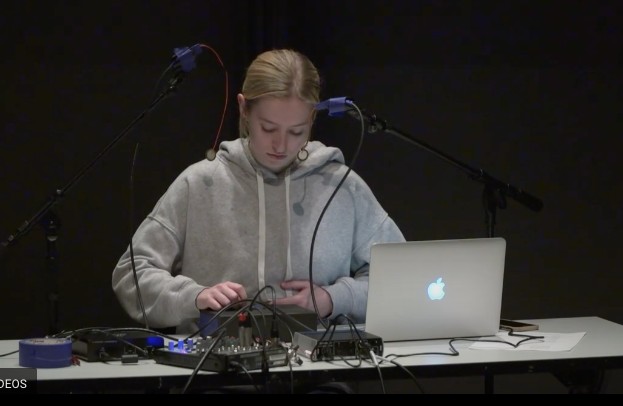
Contact Info:
- Website: https://www.leni.live/
- Instagram: https://www.instagram.com/lenikreienberg/
- Youtube: https://www.youtube.com/channel/UCVsCi4lPxyzgejRqsUrEjEg
Image Credits
Celine Kang Steven Pisano


